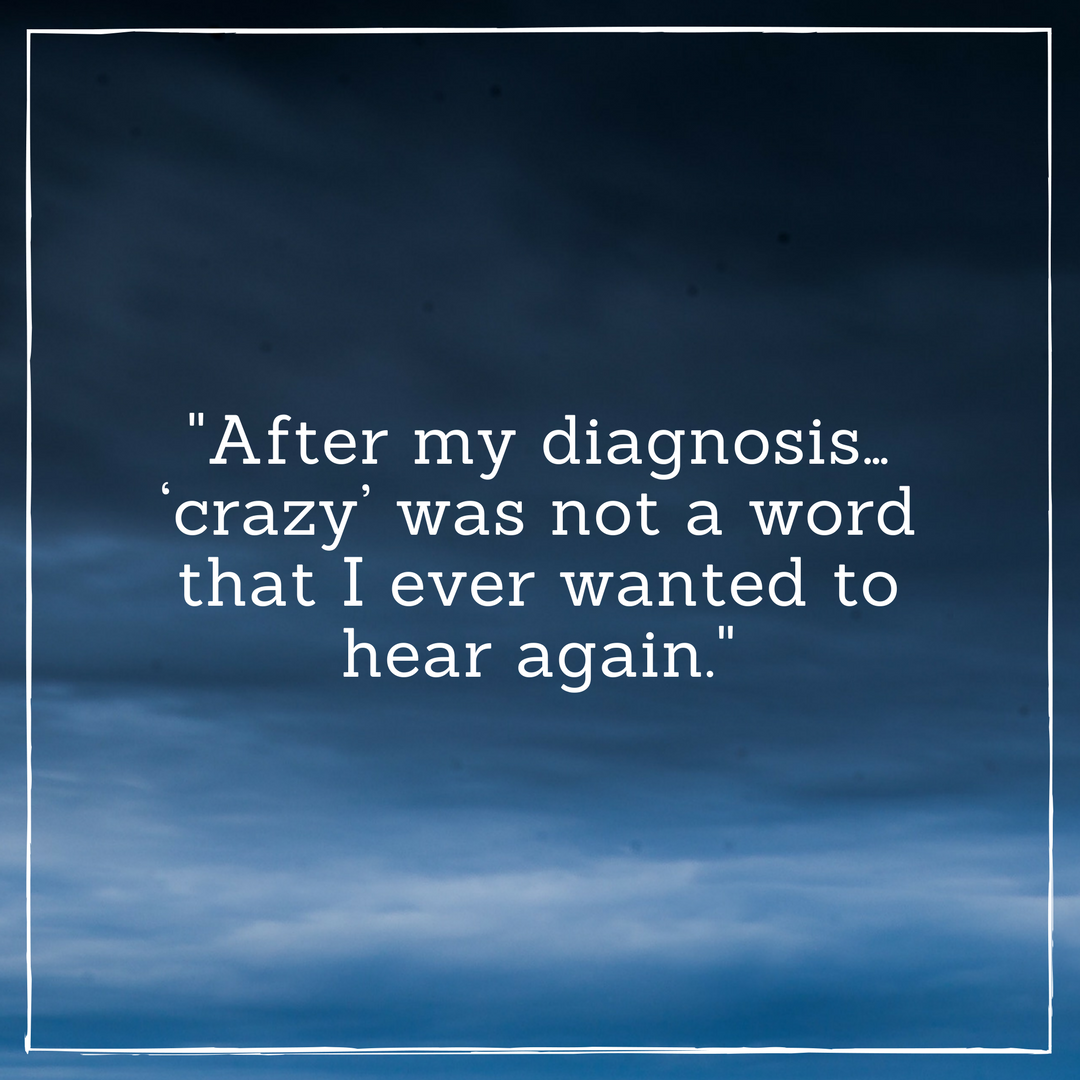March 08, 2018
By Robert Spencer

In the light of recent events, there has been a lot of focus on mental illness and it hasn’t been positive. Studies have shown that people living with mental illness are far more likely to be the victims of violent crimes than the perpetrators, but that doesn’t stop some in society from blaming us for almost every violent act reported.
And there is a word that has bothered me since I was a teen, and I hear it repeated almost daily, from people in power (who should be more thoughtful) and people on the street, sometimes many times a day.
So, I consulted an online dictionary and found the definition of the word. What follows is the definition and a few thoughts regarding its use in society.
Crazy – adj.
1. Mentally deranged, especially as manifested in a wild and aggressive way.
“Stella went crazy”
Synonyms: mad, insane, mad as a March hare, deranged, lunatic, etc.
Informal: mental, nutty, bonkers, loopy, bats, raving mad, crackers, etc.
Antonyms: sane
2. Extremely enthusiastic
“I’m crazy about Daphne.”
Synonyms: passionate about, (very) keen on, enamored of, smitten with, devoted to, etc.
Antonyms: indifferent, apathetic
What a word, and with two almost entirely different perspectives. In my 50 years on this planet, I have heard that word used more times than I can count. And the word didn’t bother me until I graduated from high school. Then came a doctor’s visit, and a diagnosis, and “crazy” was not a word I ever wanted to hear again. But I do hear it, from family, friends and strangers—a mixture of the first two definitions of crazy. Sometimes, it is the rather harmless definition; often, it is not.
The word has, unfortunately, become commonplace, similar in some ways to the word “like,” which invaded our lexicon in the 80’s. But the word “crazy” is different. I’ve had to listen to “armchair psychologists” define what “crazy” behavior is and in the same breath say what a “crazy” party they went to the night before. Words are like that. But in society, some often use the dictionary’s first definition to categorize and stigmatize a group of people who do not deserve such harsh treatment. Then, a word is more than a word.
Mental illness is an illness, even though some choose not to accept it. “Crazy” has been a word to portray those who suffer with mental illness as dangerous, weak, unpredictable, unproductive and incapable of rational behavior or relationships. It is a word used without any serious thought or consideration. But, in a strange way, we see the first two meanings used to hurt some and benefit others. It is a word that can be used to criticize an individual or group, keep a stigma in place or, when used in commercials, sell cars, sweets and even peanut butter (i.e. “Come to Crazy Al’s used cars for the best deals”). What a word, indeed.
So, what is the solution? Many dictionaries are constantly being revised to accommodate the newest slang. If the first definition of the word “crazy” must have a place in the dictionary, make it the last definition:
3. (Of an angle) appearing absurdly out of place or in an unlikely position.
“the monument leaned at a crazy angle”
Or perhaps it is time to retire the first definition altogether and begin to strive to be a more enlightened society. It has been a verbal weapon long enough. Folks can be crazy in love, crazy about old movies and crazy about cheese. And let that monument lean at its crazy angle but leave it at that. There is always room in our world for more empathy.
“At the root of this dilemma is the way we view mental health in this country. Whether an illness affects your heart, your leg or your brain, it’s still an illness, and there should be no distinction.” – Michelle Obama
Robert Spencer has been living with bi-polar illness for the last thirty years. He currently works in IT and resides in Cary, North Carolina.
Submit To The NAMI Blog
We’re always accepting submissions to the NAMI Blog! We feature the latest research, stories of recovery, ways to end stigma and strategies for living well with mental illness. Most importantly: We feature your voices.
LEARN MORE